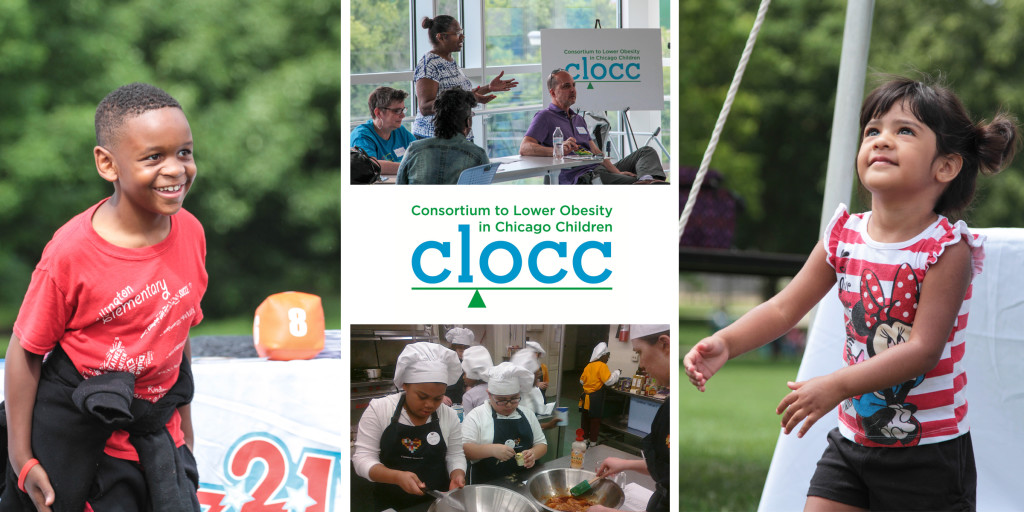A message from Adam Becker, PhD, MPH
For CLOCC, 2022 was a year of celebration, reflection, and direction setting for the future. The year culminated with our Winter Convening, where we celebrated 20 years together as a consortium. Dr. Sara Bleich, Director of Nutrition Security and Health Equity at the US Department of Agriculture (USDA) was our keynote speaker, presenting on the newly unveiled National Strategy on Hunger, Nutrition, and Health. The agenda strategy is built around five pillars: improving food access, prioritizing nutrition in overall health, empowering consumers, supporting physical activity for all, and enhancing food and nutrition research. Meeting attendees watched a pre-recorded reflection from our founder, Dr. Kathy Christoffel, on the past and future of obesity prevention, and an emphasis on moving our focus further and further “upstream” to address root causes and create sustainable change. We presented our 20 Under 20 honorees while partners networked in person for the first time since 2019. It was an honor to recognize these emerging leaders and to be able to celebrate them. I hope you have been as inspired by them as I have as we shared their stories with you over the last few months in our newsletter.
CLOCC’s 20th happened at a time when the nation is looking at health and obesity through a different lens and when our own Patrick M. Magoon Institute for Healthy Communities (CLOCC’s home at Lurie Children’s since 2020) has strengthened the clinical community connection across many Lurie clinical divisions and public health programs. And so, in the second half of the meeting, I shared the results of a year-long strategic direction setting process to identify priorities for the future of Lurie Children’s work in obesity prevention. Many people contributed to this process, including representatives of neighborhood and citywide organizations, government partners, CLOCC’s Executive Committee and External Advisory Board, and 25 clinicians and staff from diverse areas of expertise across our hospital. Below, I present the results of these planning efforts. The future of our work on obesity at Lurie Children’s builds on CLOCC’s 20-year history. It also recognizes obesity as a symptom of a broader set of factors related to key social, environmental, economic, and political conditions that make nutrition and physical activity challenging for many children and their families. New and revised strategies also capitalize on the institutional strengths of Lurie Children’s Hospital.
We think about CLOCC’s core functions as “the three Cs:” Convening, Communicating, and Collaborating. Starting in 2023, the Magoon Institute will convene partners across all our programs under the broad theme of “social influencers of child health.” The convening will also provide our partners with opportunities to focus on specific content areas (e.g., nutrition, physical activity). The Magoon Institute will also launch a newsletter to communicate with partners across all the Institute’s networks – again, with a greater emphasis on the social influencers of the issues we work to address. Our collaboration with key partners in high priority neighborhoods and with statewide and national partners will continue – but will be led by staff in the newly-named “Food, Activity, and Nutrition” Initiatives (the FAN Team), which I will continue to lead. So, while we will sunset the name CLOCC and the convening and communicating solely organized around obesity prevention, Lurie Children’s commitment to addressing food access, nutrition security, physical activity, and child-focused environments will deepen and expand. Below are examples of strategies we will begin working on in 2023.
- Strategies for Partners and Community Environments
- Place-based approach in high priority neighborhoods, with a focus on environments and institutions, including schools and parks.
- Disseminate fiveSMART and 5-4-3-2-1 Go! materials and curricula to help partners deliver our healthy lifestyle messages to their constituents
- Strategies for Policy and Advocacy
- Revise and rebrand Lurie Children’s “Policy Position on Obesity and Overweight Prevention in Children” to reflect current evidence and framing
- Issue calls-to-action for policy related to food, activity, and nutrition and the institutions and environments that support them
- Strategies for Patient and Family Support
- Internal “Grand-Rounds” for Lurie Children’s clinical, programmatic, and operational staff to increase coordination and leverage resources across the institution
- Develop and implement an “Extended Care Model” to connect specialty care, primary care, and community resources for management and prevention of chronic conditions influenced by nutrition and physical activity
I hope that you will recognize both our history as a consortium and our innovation as we look to the future in this set of strategies. We look forward to communicating with you via the Magoon Institute’s newsletter. We hope to see you at our convening in 2023 focused on social influencers of child health and, as always, we welcome your engagement in the work we will continue to do at Lurie Children’s to ensure that all children across Chicago and beyond have access to nutritious food, safe opportunities for physical activity they enjoy, and the ability to reach their full potential on a foundation of health and wellbeing.
On behalf of the new FAN Team, I wish you all a happy, safe, and healthy holiday season and we look forward to connecting with you in 2023.
Sincerely,
Adam B. Becker, PhD, MPH
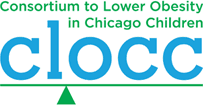

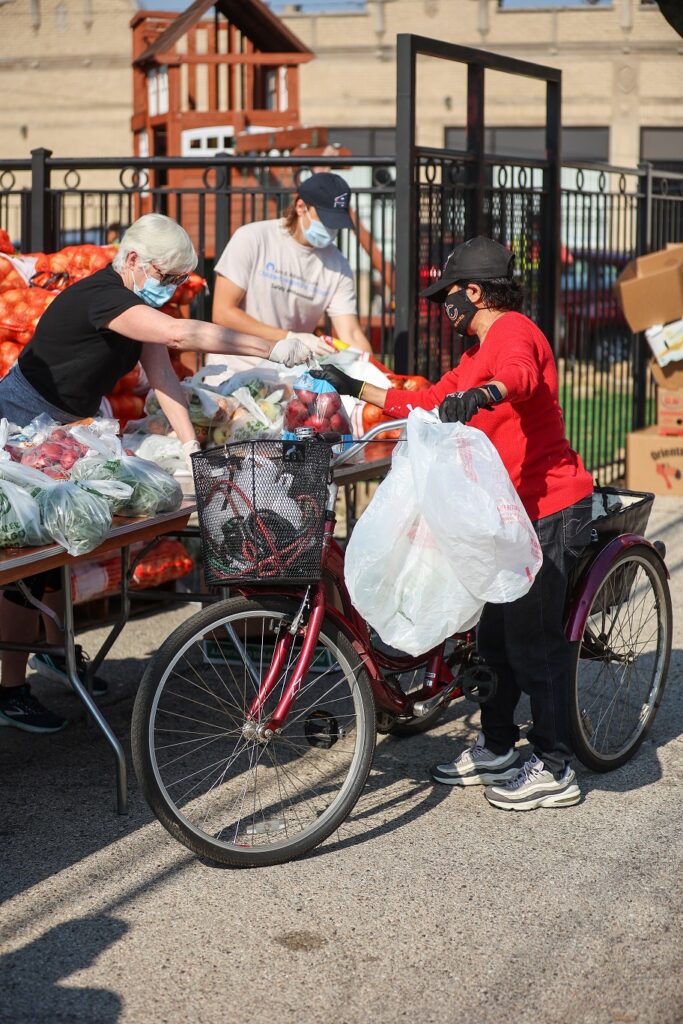
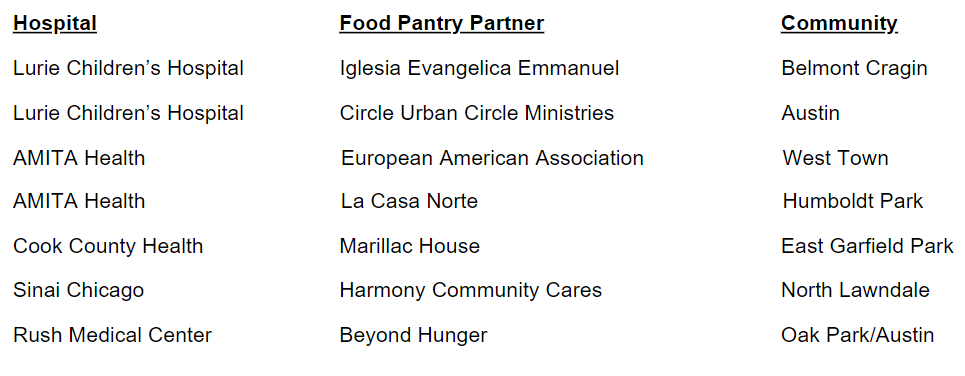
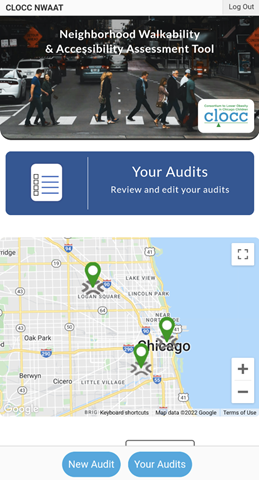
 Those of you who have been counting may have realized that 2022 marks CLOCC’s 20th year as a childhood obesity prevention network. We have much planned to celebrate this important milestone, but I’ll get to that a bit further down… 2021 was another year of tremendous uncertainty and change. As COVID-19 rates rose, fell, and rose again, we all pivoted from virtual, to in-person, to blended programming and activities that allowed us sometimes to be in shared spaces and other times forced us back online. Through it all, CLOCC partners and staff worked valiantly to make available as much information and support as we could – for each other, and for the children and families who needed them. Advancing health equity continued to be at the forefront of our network’s efforts, with a focus on food insecurity, transportation equity, and upstream factors that influence nutrition and physical activity. The bad news is that 2022 seems to be starting out with similar challenges. The good news is that the tools and processes we built last year will allow us to be nimble and responsive as the ground continues to shift. Much has been shared in the news about the linkages between obesity and COVID-19, about the impact on kids of not having the structure of a school day to support good nutrition and physical activity, and about how the pandemic has eroded the financial status of so many families. The need to work on these issues continues – and the CLOCC staff is committed to helping you keep obesity prevention on the forefront of your efforts.
Those of you who have been counting may have realized that 2022 marks CLOCC’s 20th year as a childhood obesity prevention network. We have much planned to celebrate this important milestone, but I’ll get to that a bit further down… 2021 was another year of tremendous uncertainty and change. As COVID-19 rates rose, fell, and rose again, we all pivoted from virtual, to in-person, to blended programming and activities that allowed us sometimes to be in shared spaces and other times forced us back online. Through it all, CLOCC partners and staff worked valiantly to make available as much information and support as we could – for each other, and for the children and families who needed them. Advancing health equity continued to be at the forefront of our network’s efforts, with a focus on food insecurity, transportation equity, and upstream factors that influence nutrition and physical activity. The bad news is that 2022 seems to be starting out with similar challenges. The good news is that the tools and processes we built last year will allow us to be nimble and responsive as the ground continues to shift. Much has been shared in the news about the linkages between obesity and COVID-19, about the impact on kids of not having the structure of a school day to support good nutrition and physical activity, and about how the pandemic has eroded the financial status of so many families. The need to work on these issues continues – and the CLOCC staff is committed to helping you keep obesity prevention on the forefront of your efforts.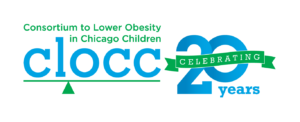 So, what lies ahead in 2022? It’s going to be a BIG year of celebrating our 20 years together, helping to address and prevent childhood obesity in Chicago and beyond. We will convene the network in February to review progress on our current annual goals, discuss strategies for accomplishing them by the end of our fiscal year in August 2022, and announce some restructuring of the network leadership that will help us bring obesity prevention forward over the next 20 years. In the coming days, we will announce a “20 Under 20” initiative to identify and recognize a collection of Chicago’s young leaders in obesity prevention and related areas. We will be formally introducing two curricula in 2022 focused on our two healthy lifestyle messages. “Healthy Food, Healthy You, Healthy Planet” is based on the
So, what lies ahead in 2022? It’s going to be a BIG year of celebrating our 20 years together, helping to address and prevent childhood obesity in Chicago and beyond. We will convene the network in February to review progress on our current annual goals, discuss strategies for accomplishing them by the end of our fiscal year in August 2022, and announce some restructuring of the network leadership that will help us bring obesity prevention forward over the next 20 years. In the coming days, we will announce a “20 Under 20” initiative to identify and recognize a collection of Chicago’s young leaders in obesity prevention and related areas. We will be formally introducing two curricula in 2022 focused on our two healthy lifestyle messages. “Healthy Food, Healthy You, Healthy Planet” is based on the 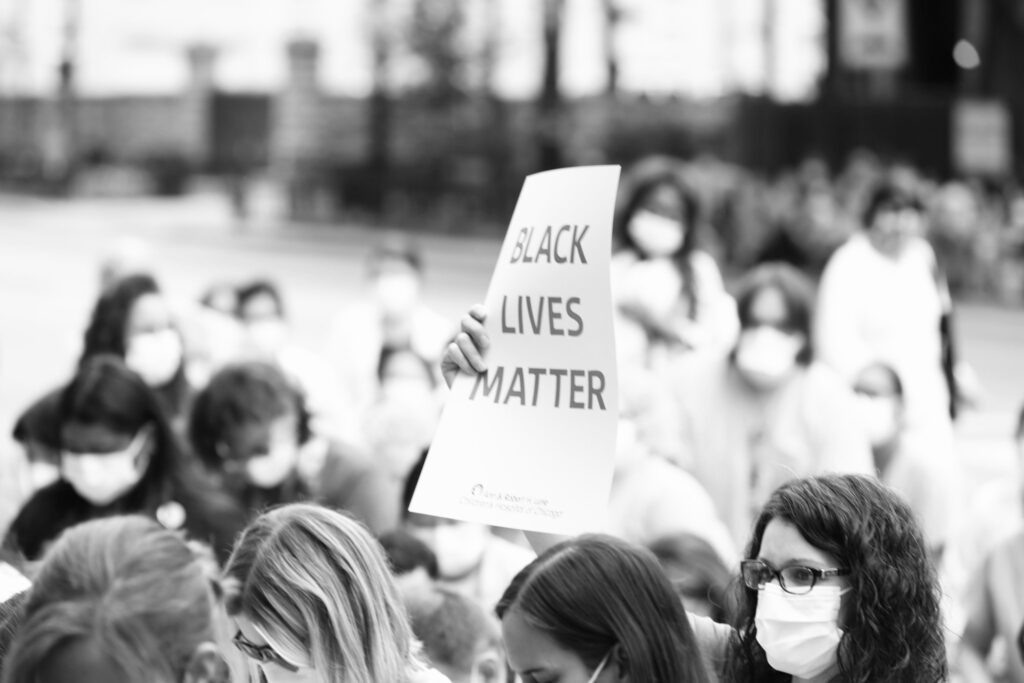

 The
The  Over the past few years we have committed to a more explicit examination of the role that racism plays in shaping inequitable access to the resources, institutions, and environments that should be available to all children to support their right to live full and healthy lives. Even more recently, we have begun a process to actively identify and address the ways in which racism impacts our own practice. As an organization that convenes, collaborates, and communicates with a vast network of partners, we acknowledge that we must commit to actively listen to and elevate the voices of Black and Brown colleagues, partners, and communities as we join with countless others to dismantle pervasive systemic racism in our society at all levels.
Over the past few years we have committed to a more explicit examination of the role that racism plays in shaping inequitable access to the resources, institutions, and environments that should be available to all children to support their right to live full and healthy lives. Even more recently, we have begun a process to actively identify and address the ways in which racism impacts our own practice. As an organization that convenes, collaborates, and communicates with a vast network of partners, we acknowledge that we must commit to actively listen to and elevate the voices of Black and Brown colleagues, partners, and communities as we join with countless others to dismantle pervasive systemic racism in our society at all levels.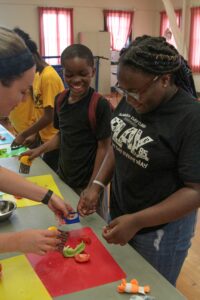 We are proud of the progress we made in 2019 on strategies that have been at the center of CLOCC’s obesity prevention over our 17-year history. In our community engagement work, with continued support from
We are proud of the progress we made in 2019 on strategies that have been at the center of CLOCC’s obesity prevention over our 17-year history. In our community engagement work, with continued support from 